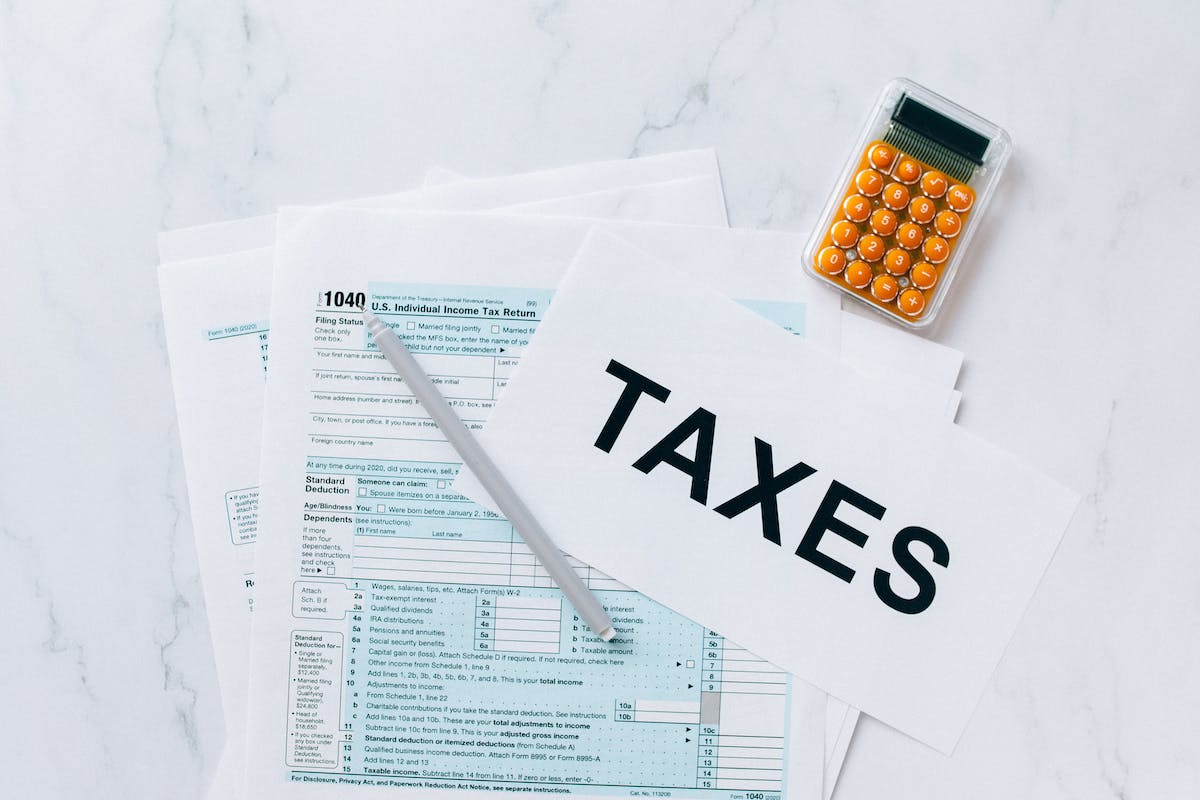
Does Florida Have Capital Gains Tax?
No, Florida doesn’t impose a state-level Capital Gains Tax. That means when you make a profit from selling your stocks, real estate, or other investments, you won’t have to share a chunk of it with the state.
However, keep in mind that while Florida doesn’t have a state-level Capital Gains Tax, the federal government still expects its share. So, you’ll need to consider the federal Capital Gains Tax rules which i explained below.
In a nutshell, when it comes to state-level taxes on your gains, Florida gives you a break. So, enjoy those sunny returns without the worry of an extra tax bill from the Sunshine State!
What Is the Capital Gains Tax?
Alright, let’s kick things off with the basics. Capital Gains Tax is a tax on the profit made from the sale of an asset. In Florida, like in the rest of the U.S., this tax applies to various investments like stocks, real estate, or other valuable items you decide to sell.
Types of Capital Gains
Now, not all capital gains are the same. There are two main types – short-term and long-term.
- Short-term Capital Gains: Short-term gains come from selling assets you’ve held for one year or less. The tax rates for these gains are usually higher than long-term gains, aligning with your regular income tax bracket. So, the quicker you flip an asset, the more you might owe in taxes.
- Long-term Capital Gains: On the flip side, long-term gains stem from selling assets held for over a year. The tax rates for long-term gains are generally more favorable, often capping at a lower percentage than short-term gains. The idea here is to reward investors for the patience of holding onto their investments.
Summarizing the Short-Term vs Long-Term Capital Gains
| Type | Duration | Assets | Benefits | Pros | Cons | Tips |
|---|---|---|---|---|---|---|
| Short-Term Gains | One year or less | Stocks, bonds, real estate, etc. | Quick returns, often tied to regular income tax rates | Rapid profits | Higher tax rates compared to long-term gains | Consider holding for at least a year for tax advantages |
| Long-Term Gains | More than one year | Stocks, real estate, investments | Lower tax rates, rewards patience and long-term vision | Tax advantages, potential for lower rates | Requires holding onto assets for a more extended period | Plan investments with a long-term perspective |
How Federal Capital Gains Tax Works?
Now, let’s zoom out a bit and talk about the big picture – the federal capital gains tax. This tax is imposed by the federal government and applies to your total capital gains for the year.
- Tax Brackets: Just like your regular income tax, the federal capital gains tax has brackets. Depending on your income level, you could pay 0%, 15%, or 20% on your gains. The rate you fall into depends on how much you make.
- Exemptions and Deductions: The good news is not all gains are taxed. Some investments qualify for special treatment, and certain deductions can reduce your taxable gains. For instance, selling your primary residence might make you eligible for an exclusion.
Here’s a table summarizing key aspects of the Federal Capital Gains Tax in the United States, considering the context of Florida:
| Aspect | Details |
|---|---|
| Applicability | Throughout the United States, including Florida. |
| Tax Rates | 0%, 15%, or 20% depending on your income bracket. |
| Gains Classification | Short-term gains (held for one year or less) vs. Long-term gains (held for more than one year). |
| Exemptions | Certain exclusions, like selling a primary home, may apply. |
| Benefits of Exemptions | Potential reduction or exclusion of taxable gains. |
| Pros | – Lower tax rates for long-term gains. – Exemptions can significantly reduce tax liability. |
| Cons | – Higher tax rates for short-term gains. – Limited exemptions may not cover all situations. |
| Tips for Tax Efficiency | 1. Consider holding assets for more than one year for lower rates on long-term gains. 2. Explore available exemptions and deductions. 3. Offset gains with losses for tax efficiency. 4. Stay informed about changes in tax laws. |
Calculating Capital Gains Tax
Now, let’s discuss the math behind it. Calculating your capital gains tax involves a straightforward formula.
Capital Gains Tax = Sales Price − Cost Basis
Sales Price is what you sell the asset for, and Cost Basis is what you paid for it, plus any additional costs like commissions or fees.
Don’t forget about adjustments for improvements made to the asset over time. These adjustments increase your cost basis, reducing your overall gains.
How Calculate Florida Real Estate Short-Term Capital Gains Tax?
Alright, calculating Short-Term Capital Gains Tax on your Florida real estate isn’t as complex as it sounds. Let’s break it down step by step with a real-life scenario.
Example: Imagine you bought a beachfront condo in Florida for $300,000. You decided to sell it after just 9 months for $350,000, making a profit of $50,000.
Step 1: Determine Your Cost Basis
- Your cost basis is what you paid for the property plus additional costs like closing fees. In this case, let’s say your total cost basis is $305,000.
Step 2: Calculate Your Gain
- Subtract your cost basis from the selling price: $350,000 – $305,000 = $45,000.
Step 3: Apply Short-Term Capital Gains Tax Rate
- Since you held the property for less than a year, this gain falls into the short-term category. Short-term gains are taxed at your ordinary income tax rate. Let’s assume your income tax rate is 22%.
Step 4: Calculate Tax Liability
- Multiply the gain by your tax rate: $45,000 * 0.22 = $9,900.
Result: In this example, your Short-Term Capital Gains Tax on the Florida real estate transaction would be $9,900.
How Calculate Florida Real Estate Long-Term Capital Gains Tax?
Alright, sunshine seekers, figuring out Long-Term Capital Gains Tax on your Florida real estate isn’t rocket science. Let’s walk through the steps with a tangible example.
Example: Imagine you snagged a charming property in Miami for $400,000. Patiently nurturing it for 5 years, you decide to sell it for $500,000, making a profit of $100,000.
Step 1: Determine Your Cost Basis
- Your cost basis includes what you initially paid plus additional costs like closing fees. Let’s say your total cost basis is $420,000.
Step 2: Calculate Your Gain
- Subtract your cost basis from the selling price: $500,000 – $420,000 = $80,000.
Step 3: Apply Long-Term Capital Gains Tax Rate
- Since you held onto your piece of paradise for more than a year, this gain falls into the long-term category. Long-term gains are taxed at more favorable rates, let’s assume 15% for this example.
Step 4: Calculate Tax Liability
- Multiply the gain by your tax rate: $80,000 * 0.15 = $12,000.
Result: In this example, your Long-Term Capital Gains Tax on the Florida real estate transaction would be $12,000.
References For Capital Gains Tax
Here are some suggested websites where you can find reliable tax-related information:
- Internal Revenue Service (IRS):
- U.S. Government Publishing Office (GPO):
- Tax Policy Center:
- Investopedia:
- The Wall Street Journal – Taxes:
When researching tax-related information, it’s essential to rely on authoritative government sources, reputable financial news outlets, or well-established tax policy organizations. Always check for the latest updates and changes in tax laws, as they can be subject to modifications by legislative actions. If you have specific questions or need personalized advice, consulting with a qualified tax professional is recommended.
FAQs on Capital Gains Tax in Florida
Q1: How much is the capital gains tax in Florida?
Florida doesn’t impose a state-level capital gains tax. However, federal capital gains tax may apply. For the latest information, it’s advisable to check with official sources or consult a tax professional.
Q2: How do I avoid capital gains tax in Florida?
While Florida itself doesn’t have a state-level capital gains tax, you may still be subject to federal capital gains tax. Strategies to potentially minimize taxes include holding onto assets for more than a year for lower rates and exploring exemptions and deductions.
Q3: Are all capital gains taxed at 20%?
No, not all capital gains are taxed at 20%. Federal capital gains tax rates can be 0%, 15%, or 20%, depending on your income and the duration for which you held the asset.
Q4: How do I avoid capital gains tax?
Strategies to potentially avoid or minimize capital gains tax include holding assets for the long term, exploring exemptions, utilizing losses to offset gains, and considering tax-efficient investments. Consulting with a tax professional is recommended for personalized advice.
Q5: Is there a capital gains tax on selling a house in Florida?
Florida doesn’t have a state-level capital gains tax on the sale of a house. However, federal capital gains tax may apply. Exclusions, like the primary residence exclusion, can help reduce the tax burden.
Q6: How is capital gains calculated in Florida?
Calculating capital gains involves subtracting the cost basis (purchase price + additional costs) from the selling price. The resulting gain is subject to federal capital gains tax rates, which vary based on your income and how long you held the asset.





